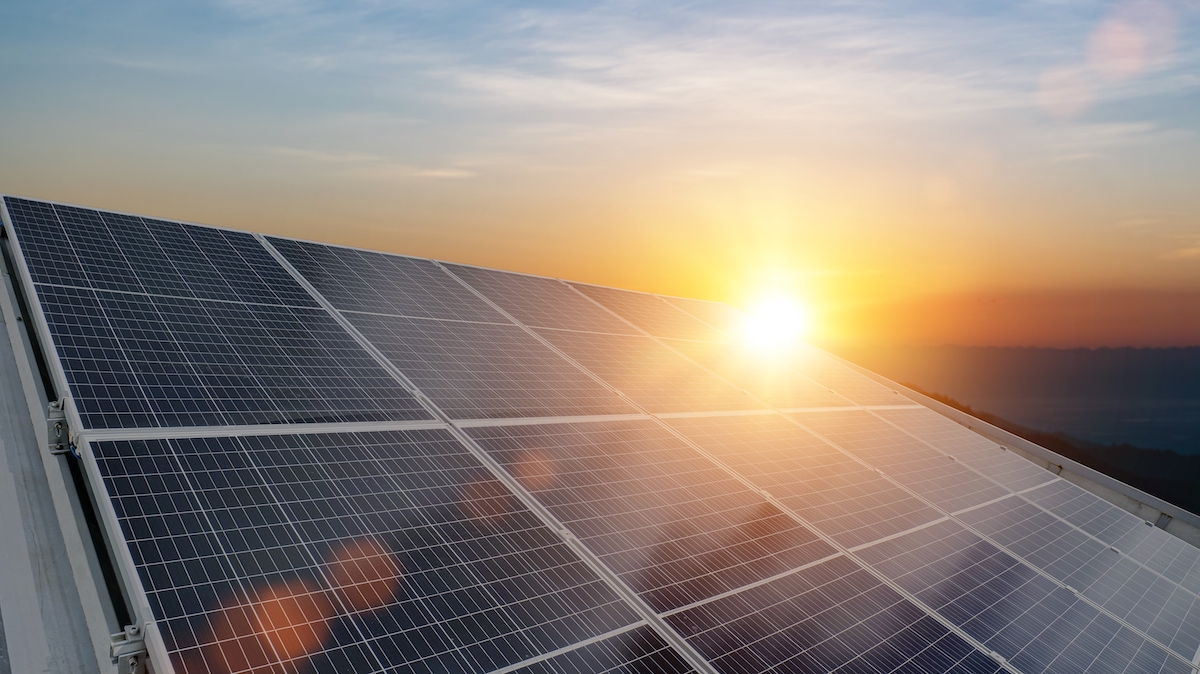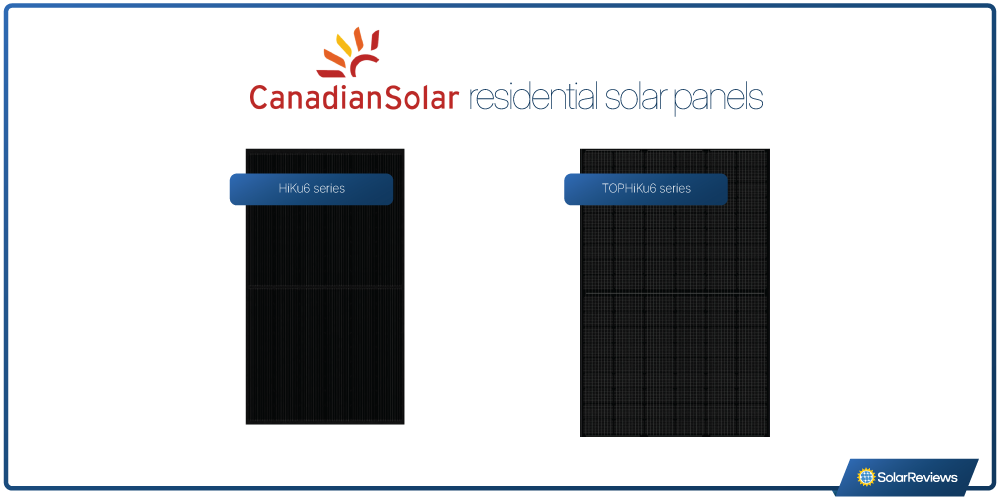Updated 11 months ago
Canadian Solar Panels 2025 Expert Review
Written by
Ben Zientara

Find out what solar panels cost in your area
If you’re interested in going solar, chances are at least one of the installers you’ll talk to will offer Canadian Solar panels. Are they any good? YES!
For 2025, SolarReviews has named Canadian Solar #1 on our list of the best solar panels. The company offers excellent products and has a long history of success and big plans for the future. Based on product quality and the company’s longevity and stability, SolarReviews highly recommends Canadian Solar panels.
Below, we’ll discuss how panels from Canadian Solar compare to offerings from other top brands and whether you can trust them to last for multiple decades on your roof.
Key takeaways
-
Canadian Solar is one of the five biggest solar panel manufacturers in the world, with 20 years in business, and SolarReviews has named the company the top solar panel brand of 2025.
-
The company’s residential solar panel lines are HiKu6 and TOPHiKu6, giving homeowners options for performance and price.
-
The TOPHiKu6 product line is ideal for homeowners with limited roof space since these panels have the highest efficiency ratings.
-
Canadian solar panels are more affordable than some other brands, with the average-sized installation costing about $2.96 per watt vs a $3.03/watt average.
-
The company’s TOPHiKu6 warranty meets or exceeds the industry’s standard, and its financial performance indicates it’ll be around to back those warranties up.
About Canadian Solar
Canadian Solar Incorporated is one of the five largest solar module manufacturers in the world; as of late 2023, they had plans for an annual production capacity of over 60 GW.
The company’s corporate headquarters is located in Guelph, Ontario, and it maintains a 500 MW manufacturing facility in Canada. The company also operates a major U.S. manufacturing facility in Mesquite, Texas.
That said, the vast majority of Canadian Solar’s module manufacturing is done in China. In addition to the Chinese and Canadian facilities, Canadian Solar also manufactures various solar materials in Indonesia, Vietnam, and Brazil.
Canadian Solar was founded in 2001 by Dr. Shawn Qu, making it a relatively old solar manufacturer. It has since grown to employ thousands of people on several continents. The company is partially vertically integrated, meaning they not only make solar panels (also called ‘modules’), but also produce some of the raw silicon ingots, wafers, and solar cells that go into those panels.
Here’s a video of SolarReviews CEO Andy Sendy discussing his thoughts on Canadian Solar:
Current Canadian Solar panels

As you might imagine, with a company that has nearly 25 years of solar manufacturing under its belt, Canadian Solar offers a large number of products.
Canadian Solar offers two main solar panel module series for residential use in the United States: HiKu6 and TOPHiKu6. Panels in both series feature 108 half-cut cells, but the difference is that HiKu6 panels use older PERC solar cell technology while TOPHiKu6 panels use newer TOPCon cell technology.
Here’s some information about each of these products:
HiKu6 solar panels
Canadian’s HiKu6 solar panels are their stock-standard offering. They were introduced in 2022 as a newer version of the company’s HiKu line.
HiKu6 modules for the U.S. market come only in an All-Black version. These panels come in at 20.7% maximum efficiency and can output between 380 and 405 watts, depending on the efficiency of the cells inside. This is a little lower than the industry standard, but the modules are still excellent quality.
TOPHiKu6 solar panels
As the name implies, Canadian Solar’s TOPHiKu6 panels are the company’s top-of-the-line models. Also, as the name implies, they use highly efficient TOPCon solar cells. The panels can reach up to 23% efficiency.
That extra oomph means TOPHiKu6 panels can generate more solar power than the older model. They put out between 445 and 470 watts under full sun despite being nearly the same physical size as the HiKu6.
For the North American residential market, TOPHiKu6 panels also come only in an all-black version.
Canadian Solar warranty coverage
Canadian Solar offers both product and performance warranties for its solar panels, but there are some important differences between the coverage for HiKu6 and TOPHiKu.
The HiKu6 warranty includes 12 years of protection against failures related to materials and workmanship, and a 25-year performance warranty that says the panels will produce at least 98% of their rated power by the end of the first year, and retain at least 84.8% of their power output by the end of the warranty period.
For the TOPHiKu6 warranty, Canadian Solar extends the product coverage to 25 years, and the performance warranty to 30 years, guaranteeing at least 99% power output after one year and 87.4% by the end of 30 years. That’s a much better warranty than the HiKu models.
How much do Canadian Solar panels cost?
On top of being great quality panels, Canadian Solar’s residential solar panels come in at a great price, too. Costing an average of $2.96 per watt, expect to spend about $21,000 for a typical 7.2-kW solar system using Canadian Solar panels. The national average cost of solar panels in 2025 is $3.03 per watt, so Canadian Solar's panels save you a bit of money!
That cost can change based on system size, your location, the complexity of your roof, and the availability of incentives. Find out which solar incentives and rebates are available to you.
Bottom line: Are Canadian Solar panels any good?
Canadian Solar makes excellent products and backs them up with warranties that meet or exceed the industry standard. The prices are competitive, and the company has a relatively long history of profitable operation, so you can be sure they’ll be around to back up those warranties.
A system that uses Canadian Solar panels is a good investment in any state where solar panels make financial sense. If you’re ready to find an installer near you, start by using our free solar calculator to determine how much solar you’ll need for your specific home, and get cost and savings estimates.
Ben Zientara is a writer, researcher, and solar policy analyst who has written about the residential solar industry, the electric grid, and state utility policy since 2013. His early work included leading the team that produced the annual State Solar Power Rankings Report for the Solar Power Rocks website from 2015 to 2020. The rankings were utilized and referenced by a diverse mix of policymakers, advocacy groups, and media including The Center...
Learn more about Ben Zientara